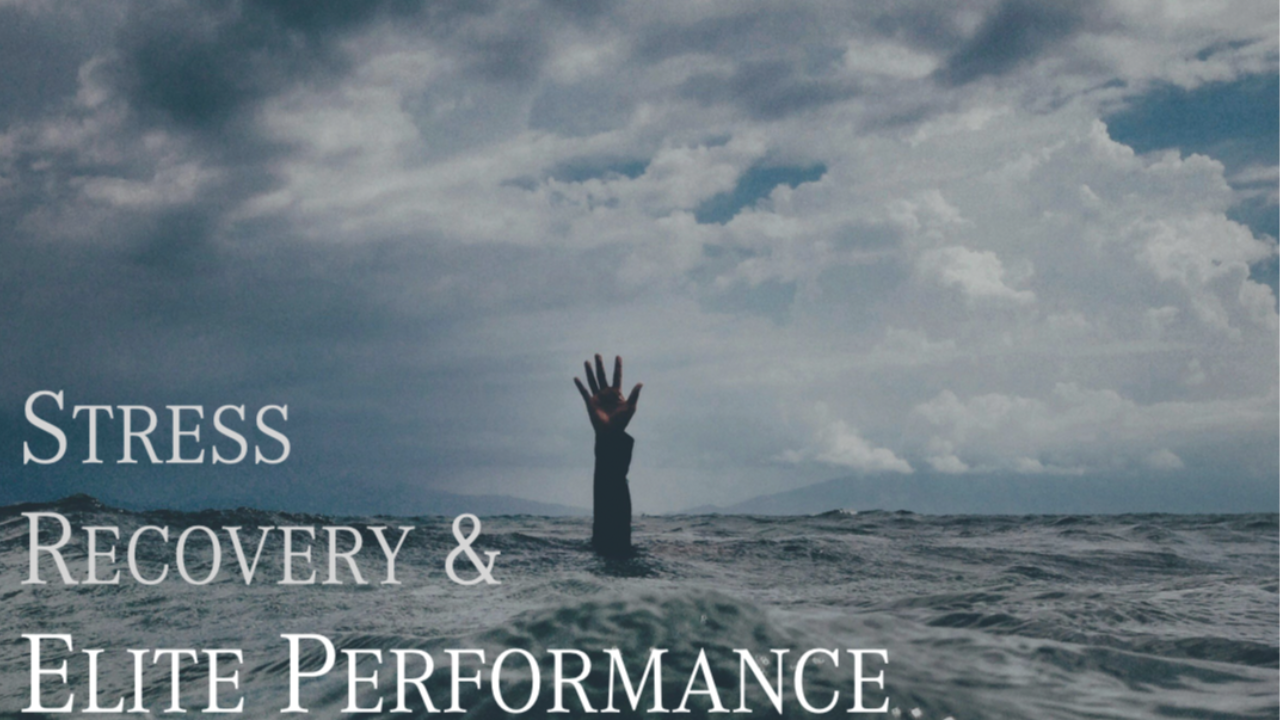14 Quotes That Shape Elite Performance
Oct 31, 2025
Leading Through Chaos
When the pressure peaks and everything feels like it's falling apart, you don't need more data or another research paper. You need clarity. Principles that have withstood the test of time.
I love to read and over the years working with elite teams I've collected wisdom from leaders and legends who have had the experience of facing impossible odds and prevailed.
I know for some they might think of them as decorative quotes for an office wall. For me. They’re principles that have guided clarity and decision-making when the stakes are highest.
Here are 14 quotes that have shaped how I've coached many through their toughest moments - and how you can apply them when leading through chaos.
- "It is not those who can inflict the most, but those who can endure the most who will prevail."
- Terence MacSwiney
This is the quote I've shared more than any other.
In any high-performance situation - setback, stumble, or chaotic moment - you face a choice.
- You can feel sorry for yourself.
- You can position yourself as a victim of circumstances beyond your control.
- Or you can reframe difficulty as adaptation.
When you're leading through crisis, your competitive advantage isn't in overpowering the opposition. Everything hits hard. That’s easy. The key is outlasting the pressure.
The leader who can endure one more quarter of uncertainty, one more difficult conversation, one more strategic pivot - that's the leader who prevails.
For me this quote reframes every difficulty as growth. Every obstacle is an opportunity.
But.
Only if you choose it.
Your competitors are facing the same chaos.
The question is: who will endure?
- "You will never reach your destination if you stop and throw stones at every dog that barks."
- Winston Churchill
This defines what I regard as mental toughness in leadership.
I’ve heard all the usual mental-toughness, hustle harder nonsense and I’ve also been fortunate to be around truly mentally tough people.
Mental toughness is the ability to consistently deliver high-level performance relative to your capability, in response to challenges and adversities associated with pursuing a goal.
In shorter terms: It’s your ability to ignore distraction and execute.
When you're leading through chaos, distractions multiply. Internal politics chirp. Critics question your decisions. Doubt whispers in your ear that you're not ready. Market noise grows deafening. Each one feels urgent. Each one demands your attention. The imposter syndrome barks …
But here's what separates elite leaders from the rest: you recognize that not every dog deserves a stone.
Your destination - the strategic objective, the transformation you're driving, the championship you're pursuing - remains fixed.
Everything else is noise.
Your attention is your most valuable resource under pressure.
Protect it ruthlessly.
- "It's not what you say as much as what they absorb."
- Red Auerbach
This comes from one of the greatest coaches in history, shared in a rare and often overlooked book: "Let Me Tell You a Story: A Lifetime in the Game" by John Feinstein.
If you’ve never read it – get it, it's a must-read for anyone in leadership, not just sport.
(Auerbach was notoriously careful about what he said while he was a coach, but in this book he's captured at his most relaxed - and it's a brilliant read).
When you're communicating under pressure, you're not measured by the clarity of your message. You're measured by what your team actually understands and executes.
This reframes every leadership communication challenge.
Stop asking "Was I clear?" Start asking "What did they absorb?"
Ask yourself – what will they hear, see and feel?
One coach I worked for banned his assistant coaches from using the phrase “But I told him not to do that X times before’ – for this very reason.
In chaos, information overload is guaranteed.
Your people are already overwhelmed. So your communication strategy must shift from comprehensive to absorbable. Three clear priorities beat ten thorough explanations. One memorable principle beats five detailed frameworks.
What matters isn't what you said, what matters is what they do.
- "Burn the boats."
- Hernán Cortés
I've used my own modern version of this principle: "There are no sacred cows."
When you're leading change management or transformation, you face a temptation:
Retreat to what's familiar. To the comfortable, the familiar. The decision that feels safest because it's worked before.
But success demands courage to make the right decision, not the popular one.
Sometimes the right decision means abandoning what brought you success before.
Sometimes it means eliminating the system everyone loves but no longer works.
As a leader, you can retain anything - except the right to change your opinion when presented with a better alternative.
The moment you make sacred cows out of past success, you've anchored yourself to a sinking strategy.
Burning the boats isn't recklessness. It's commitment.
- "The person who never made a mistake, never made anything."
- attributed to Einstein
When I was training as a student teacher I made a basic error (yes - literally a ‘school boy error’) planning a lesson. My supervisor, smiled and said "The person who never made a mistake, never made anything."
Any elite organization's must have a special relationship with failure. That relationship determines its capacity for innovation or growth.
You either win or learn.
When chaos hits, speed matters fast decisions often with incomplete information.
That means mistakes are inevitable. The key is optimization. The question is whether your culture treats mistakes as optimization opportunities or freezes.
Elite organizations move faster than competitors because they've eliminated the fear freeze. When your people aren't focused on protecting themselves from blame, they're already solving the next problem - every time getting closer to the solution.
Now, this doesn't mean celebrating incompetence.
If your best people aren't making some mistakes, they're not trying and certainly not innovating.
But note - If they're making the same mistakes twice, you have a different issue – you don't have a learning system.
- "Keep the main thing the main thing."
- Stephen Covey
In chaos, everything feels urgent.
But urgency isn't strategy.
And motion isn't progress.
When pressure peaks, you need ruthless clarity - what actually moves the organization forward?
Not what feels productive.
Not what's traditionally important.
What actually creates sustainable competitive advantage right now.
This quote reminds the discipline most leaders avoid: saying no to good opportunities so you can say yes to the right ones.
When you're leading through crisis, you don't have the luxury of doing everything well. You have to do the essential things excellently.
Everything else is distraction.
- "Don't raise your voice, improve your argument."
- Desmond Tutu
Under pressure, volume increases.
I’ve seen this so times with poor teams, literally in championship finals even. Whereas the most elite leaders lower their tone as an example to everyone.
I hate to break it to you - It’s not like on TV, ESPN or Hard Knocks
People confuse emphasis with evidence.
Conviction with correctness.
When you're leading through disagreement - credibility isn't established by how forcefully you advocate.
It's established by how clearly you think.
This quote is a reminder to separate emotional intensity from strategic clarity.
When someone challenges your approach, our instinct is to defend it more vigorously.
The best response is to examine it calmly.
Strong leaders don't need to dominate conversations. They need to win through better reasoning.
And when someone presents a superior argument?
That's a win. That's an elite organization at work.
The leader who says "Actually - that’s a better idea. Do it." hasn't shown weakness.
They've demonstrated exactly what matters - winning.
- "Wise men speak because they have something to say; Fools because they have to say something."
- Plato
In high-stakes meetings during crisis moments, we often feel pressure to have an answer.
We want to feel relevant, valuable, often driven by a deep insecurity.
But speaking before you have clarity doesn't project confidence.
It projects nervousness and insecurity disguised as action.
There’s a huge distinction between a “decision timeline” and a “commentary timeline”.
Sometimes the right decision is clear immediately.
More often than not it requires more information, more analysis, more consultation.
If you don't have something valuable to contribute, your first contribution is to listen, second is to ask insightful questions.
It’s like painting a picture. Color carefully with questions, until the solution begins to become clear.
- "He who has a why to live can bear almost any how."
- Friedrich Nietzsche
I’ve always said winning is easy. Success is easy.
But sustained success is what defines greatness.
When you're aiming for greatness – it’s not a sprint but a marathon. \And motivation isn't enough. You need something else.
Motivation depends on favorable circumstances.
It's a fuel that burns fast.
Purpose, your why, burns eternal. It's the foundation that sustains performance when circumstances turn brutal.
Note: I said your purpose. Not your companies, employers, bosses. Your purpose.
Performance endures the remarkable if you understand the why.
It’s a myth that great teams have the same purpose – they align their personal purposes.
But your team will abandon their ship at the first difficulty if they're only there for the paycheck or the prestige.
This is why reconnecting, reminding people how their decisions influence their purpose matters. Not inspirational speeches. Systematic connection between what they're doing today and what it enables for them.
When the how becomes unbearable - and sometimes it will - purpose is what keeps your people moving forward – that’s sustained success.
- "Knowledge is knowing that a tomato is a fruit, wisdom is not putting it in a fruit salad."
- Miles Kington
Never before in history have we had more information available.
Never before have we had so little wisdom.
Data, dashboards, market intelligence, scouting reports, consultant reports, expert analysis.
But information isn't insight.
And knowledge isn't wisdom.
When you're leading through chaos, the challenge isn't gathering more data. It's knowing what's relevant. What applies.
What matters for this specific decision in this specific context.
Context is King.
Wisdom is pattern recognition earned through experience, wins and losses.
For example, it's understanding the initial leadership strategy that built a team won't scale it.
You can hire smart people with extensive knowledge.
But wisdom - the ability to apply the right knowledge at the right time - can only be developed not through experience alone – but systematic reflection on that experience.
- "Do not speak badly of yourself - the warrior within hears and is lessened."
- David Gemmell
We’ve all had doubts. I certainly have.
If I listened to half the criticisms or feedback after errors, I’d never get out of bed in the morning.
But the internal narrative you maintain about yourself determines your capacity to lead.
For leaders, it’s lonely. You don’t have the support you are for others.
How you speak about yourself is more essential.
When chaos tests you, self-doubt is natural. Questioning decisions is healthy.
But there's a critical distinction between rigorous self-assessment and destructive self-talk.
The best leaders I’ve coached develop a systematic honesty about performance without sliding into identity-level criticism.
"That decision was wrong" is useful feedback.
But "I'm not cut out for this" is psychological sabotage.
When you're constantly fighting internal narratives about inadequacy, you're not deploying that energy toward solving external challenges.
This doesn't mean toxic positivity. That’s a fools errand. We’re in the real world here.
It means treating yourself with the same standards-based feedback you'd give your best performer - confident in capability, committed to growth.
- "Control the controllables."
- Unknown
This is another quote I remind myself of often. When I feel frustration heating up – I ask is the source controllable or not?
We all face a choice about where to invest our limited cognitive resources.
You can obsess over variables you can't control - creating anxiety without impact.
Or you can identify your actual sphere of influence and maximize performance there.
This principle forces clarity about three categories:
What you control directly
What you influence partially
What you can only observe.
Focus on the first. The second will take care of itself, the third? F*ck it.
You control your effort, your preparation, your response to adversity.
You influence team culture, strategic direction, resource allocation.
You can only observe competitors, markets, conditions…
If you catch yourself catastrophizing – ask “Is the source controllable or not?”
And act on the one thing you control that moves you forward.
- "The smart take from the strong."
- Thucydides
I first saw this as the title of a book by Pete Carrill over 25 years ago.
In a day where everyone says “more is better” - intellectual advantage matters more than resource advantage.
More is More
Better is better
You might not have the largest budget, the biggest team, or the most established market position. But if you can think more clearly, adapt more quickly, and execute more systematically than your competition, you win.
I’ve worked on both sides. Huge budgets and smaller budgets.
The hardest and least successful teams by far were the larger budgets. Far too many people being distracted by icing, but no cake.
Superior strategy beats superior resources.
Adaptive organizations not only outlast rigid ones – but they sustain success better and develop better cultures.
When you're facing competitors with more capital or more market share, this quote should remind you of your advantage. Small is big.
Out-think them.
Out-adapt them.
Out-grow them.
- "Never avoid an opportunity to shut up."
- Various
The most underutilized leadership tool is strategic silence.
You don't need to fill every pause.
You don't need to solve every problem in real-time.
You don't need to demonstrate expertise in every domain.
Listen.
As a leader listen. Listen to what and how people are speaking.
Listen more, create silence, awkwardness even … to draw them out into finally revealing why they came to you.
When you're leading through crisis especially, the tendency is to over-communicate. To reassure. To demonstrate control.
But sometimes the most powerful move is to STFU.
Strategic silence serves multiple purposes
It gives you time to think.
Invites others to contribute.
Prevents premature commitments or emotional responses.
It demonstrates confidence.
Be fully engaged and allow the conversation to develop.
The leaders who talk least often lead most effectively - because they're listening, learning, and waiting for the moment to have maximum impact.
A Quote Never Won Anything
If all it took were quotes, everyone would be a winner.
Wisdom becomes useful only when you transform it into principles you can apply under pressure. Make these 14 Performance Principles operational.
Here are how operationalize the performance principles:
15 Performance Principles for Leading Through Chaos
- Your competitive advantage is outlasting pressure, not overpowering it.
- Protect your attention ruthlessly. Not every distraction deserves a response.
- Stop asking "Was I clear?" Start asking "What did they absorb and execute?"
- When retreat isn't an option, commitment becomes your strategy.
- If your best people aren't making mistakes, they're not pushing hard enough.
- Say no to good opportunities so you can say yes to the right ones.
- Win through better reasoning, not louder voices.
- Strategic silence is more powerful than constant commentary.
- When motivation fails, purpose sustains performance.
- Information isn't insight. Wisdom is knowing what matters in context.
- How you speak to yourself determines your capacity to lead.
- Focus on what you control. Influence what you can. Ignore the rest.
- Superior strategy beats superior resources.
- The leaders who listen most lead most effectively.
- Actions beat talk
These principles work because they've lasted, they’re battle-tested, and not not in boardrooms alone.
The leaders who prevail aren't the ones with the best plans.
They're the ones with the best principles.
Fergus Connolly has worked with championship teams across the NFL, Premier League, International Rugby, and Fortune 500 organizations. He is the author of Game Changer, 59 Lessons and advises leaders on building systematic excellence. Learn more at fergusconnolly.com





